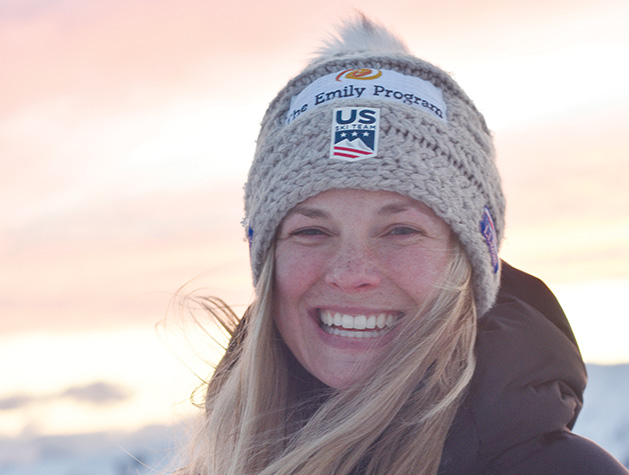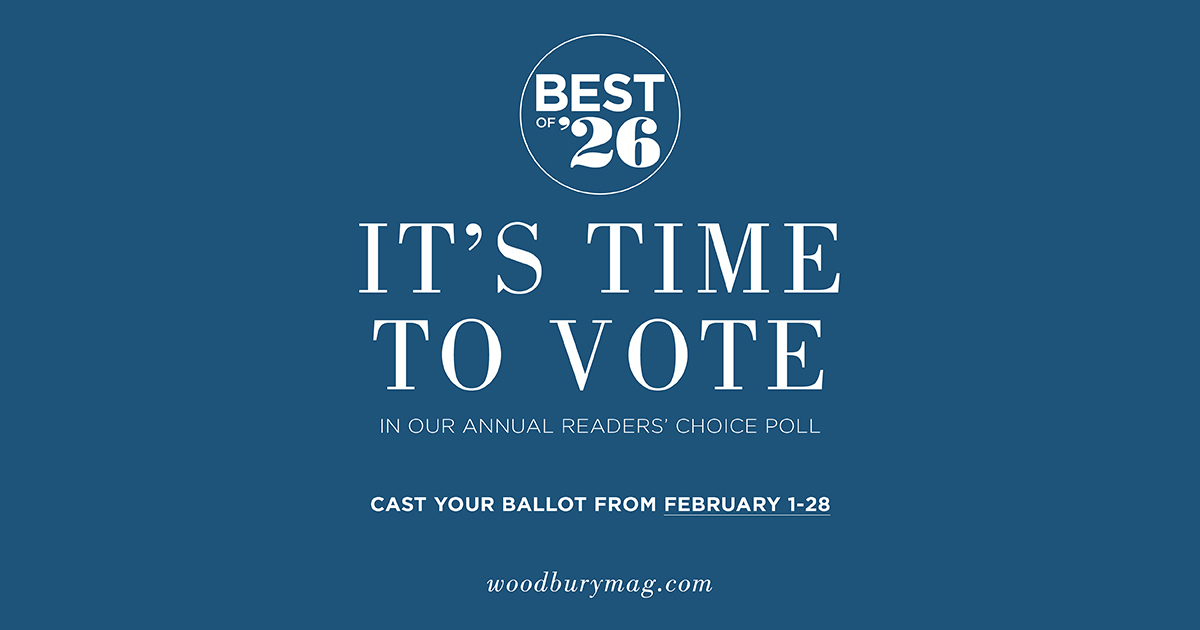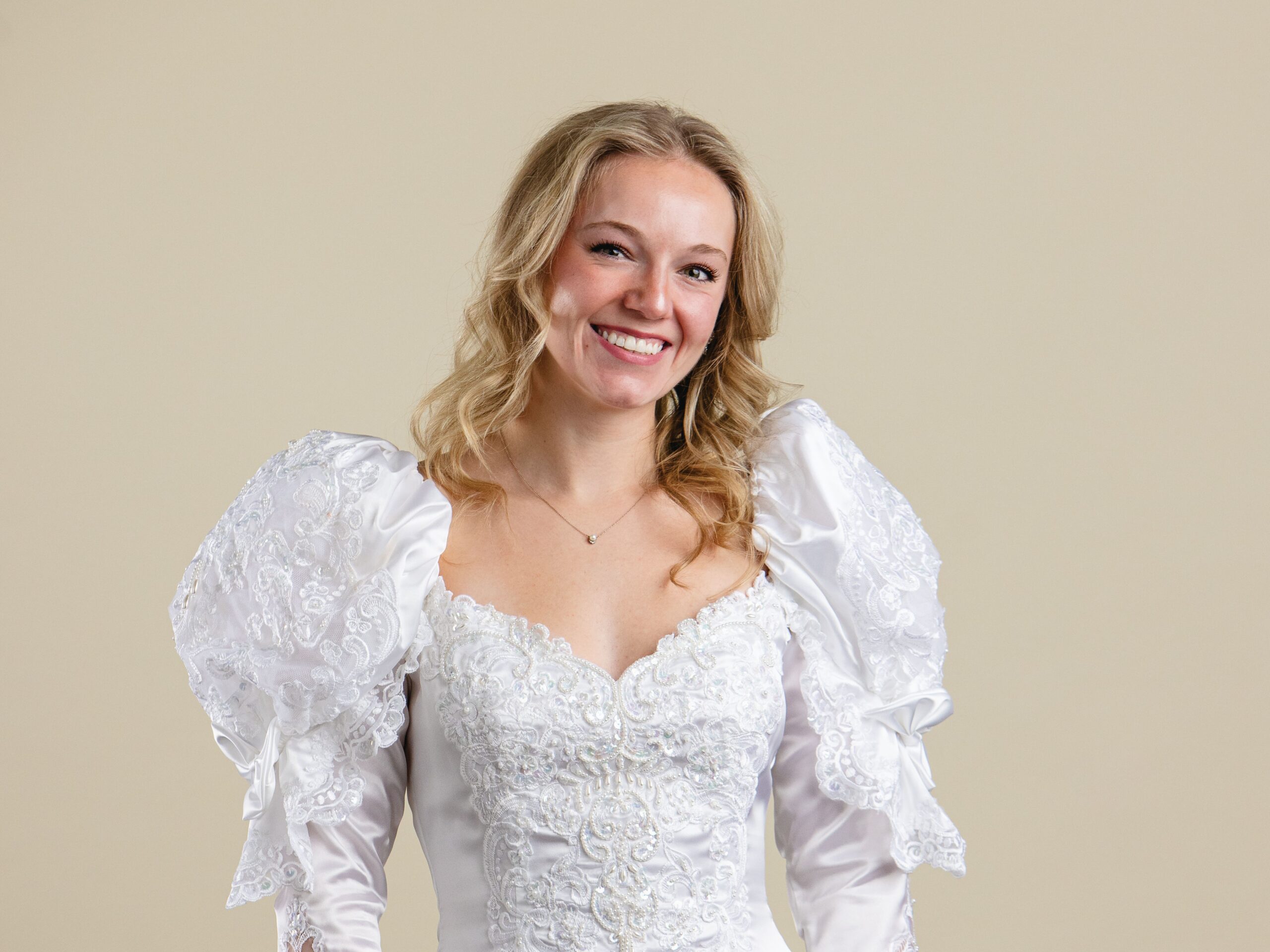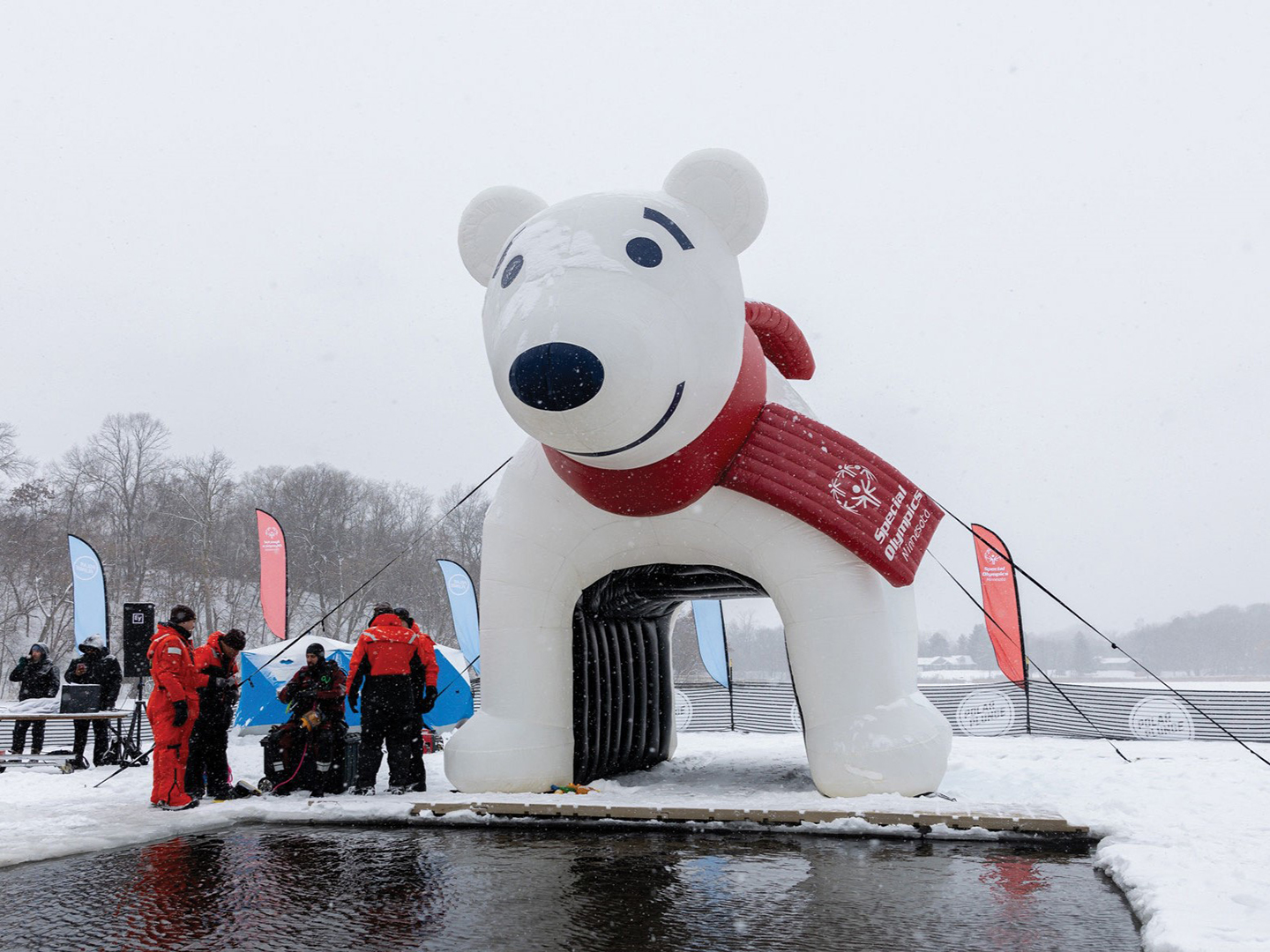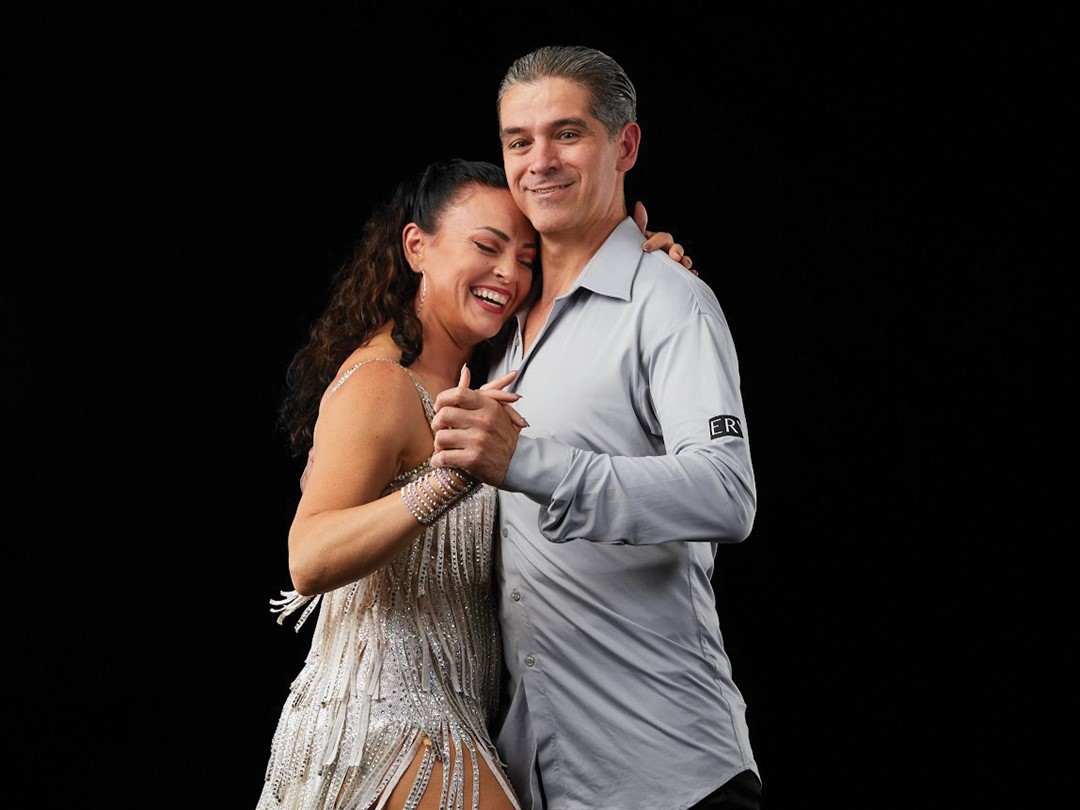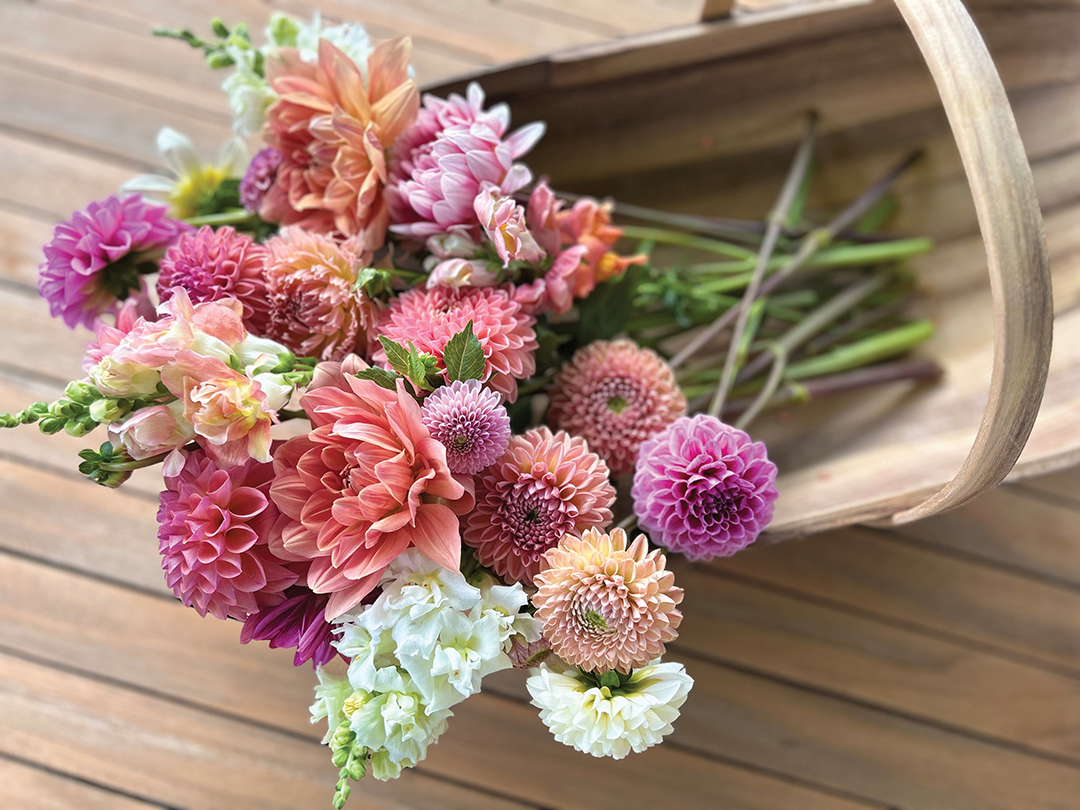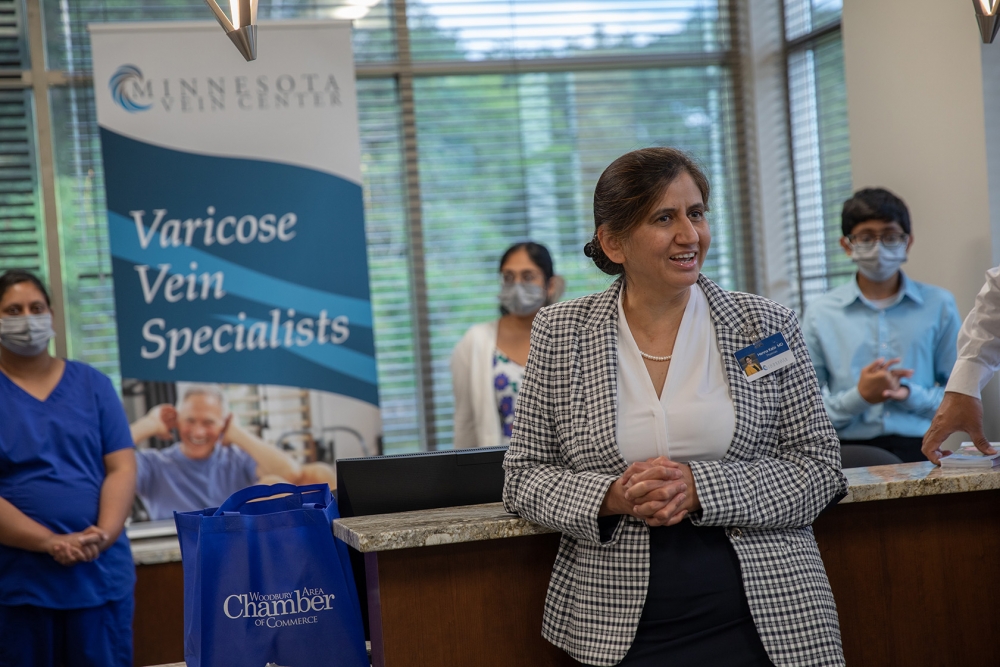
Dr. Kalsi at the opening of the new Woodbury Minnesota Vein Clinic location. Photos: Alissa Coddington
Dr. Kalsi helps us detangle the differences between spider veins and varicose veins.
In July, Minnesota Vein Center cut the ribbon on a new location in Woodbury. “It went really well,” says clinic owner Henna Kalsi, M.D. “We had chamber members, mayor Anne Burt came, and then some of our friends and a lot of our staff were there.
Also on the invite-list were Primepares Pal, M.D. and nurse practitioner Jacqueline “Jackie” Pal, the original cofounders of Minnesota Vein Center. The pair opened the original North Oak location in 2004, which Kalsi took over in 2020.
“My background is in vascular medicine and I’ve been in vascular medicine for the last 20 years,” Kalsi says. After working as a consultant at Mayo Clinic for 10 years, Kalsi opened her own practice in Rochester.
The reason for opening a new Minnesota Vein Center in Woodbury was simple for the doctor: demand. “We had a lot of patient requests from Wisconsin, so we thought this would be a little bit closer,” Kalsi says.
Minnesota Vein Center primarily treats varicose and spider veins, but the recent expansion will soon allow them to broaden their scope. “We’re going to have a lymphedema clinic here at the Woodbury location later in fall,” Kasli says, noting that the condition—a painful swelling of the hands or feet due to a blockage in the lymph system—is under-recognized and not very well treated.
“We also do a lot of aesthetic treatments like hand veins, face veins,” Kalsi says. “There will be a little more of an aesthetic treatment component later in the year. We’ll be adding a few other things.”
Kalsi says the main difference between medically necessary vein treatment and aesthetic vein treatment is in the symptoms. “Pain, aching, tiredness, heaviness, restless leg, swelling, that shows there is leakage in their veins; that’s considered medically necessary,” she says. “All the insurances cover that. If somebody has no symptoms and the ultrasound is normal, those are considered aesthetic or cosmetic treatments.”
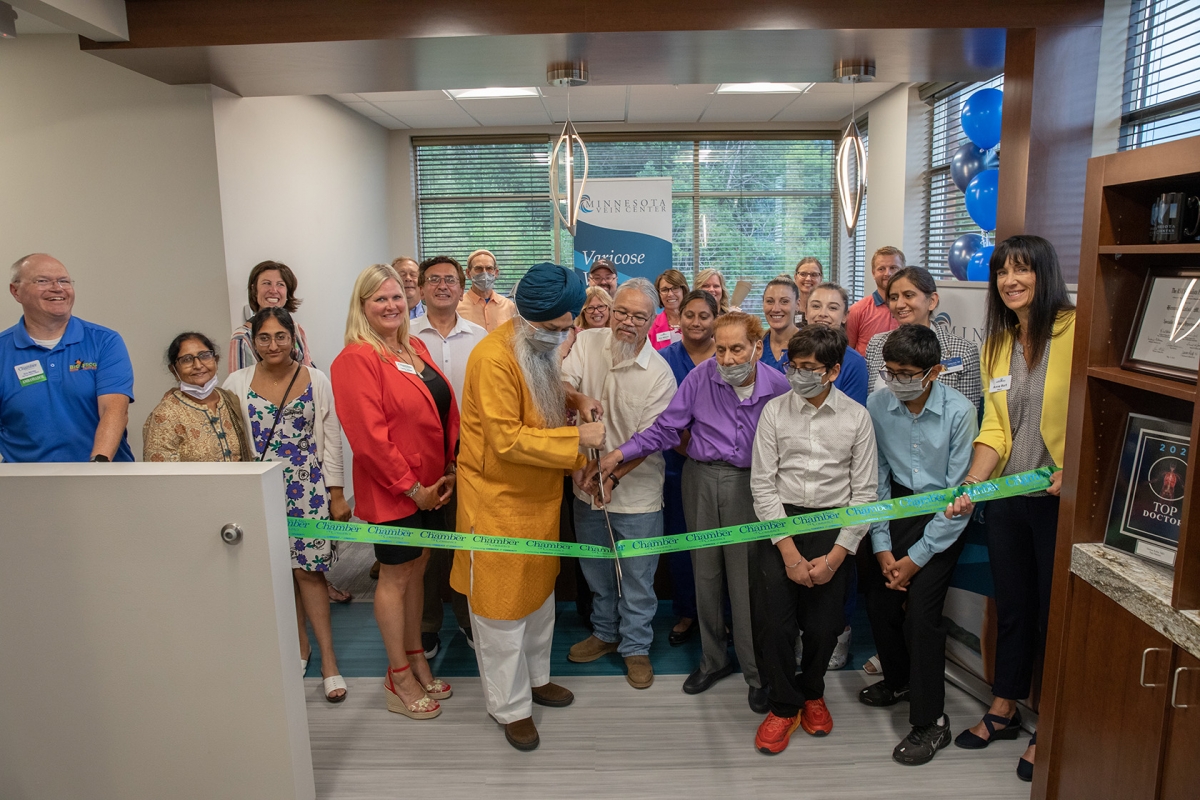
So, what exactly are spider veins? Varicose? How do people avoid getting them in the first place, and what can you do if you have them already? We asked Kalsi to share her medical expertise and detangle these questions for us.
What’s the difference between spider veins and varicose veins?
Spider veins are red, purple and blue veins which are close to the skin surface, easily visible and have a web-like configuration. Most commonly noted on the legs and face. They may or may not cause any pain or discomfort and could be mainly a cosmetic concern.
Varicose veins on the other hand are large, raised and more bulging than spider veins. They can be blue or purple in color. They are very common and easily visible on the legs, including calves and thighs. These frequently cause pain, aching, throbbing, tiredness and heavy legs. Rarely, they can cause more problems such as dermatitis, blood clots or skin ulcers. Treatment is often medically necessary.
What preventative measures can you take at home to avoid developing spider veins and varicose veins?
- Regular exercise and walking can help to strengthen your calf muscle pump function and decrease symptoms of varicose veins.
- Regular wearing of compression stockings can help decrease symptoms of varicose veins.
- Ankle pump exercises can strengthen calf muscle.
- Optimal weight decreases symptoms of varicose veins and venous insufficiency.
- Avoid sitting and standing for long periods of time.
- When traveling by airplane or long-distance by car, take a short walk and do ankle pump exercises every hour.
- Drink plenty of fluids to avoid dehydration.
- Maintain a healthy diet rich in fruits and vegetables, low-salt, and high-fiber.
- Leg elevation can help reduce swelling and symptoms.
Are there non surgical treatments for varicose veins and spider veins?
There are several non surgical treatments for varicose and spider veins. These include veinwave, Nd:YAG laser, liquid and ultrasound guided sclerotherapy, catheter-based vein treatments with laser or radiofrequency energy and Micorphlebectomy.
Do you have any non surgical treatments you provide?
We provide several non surgical and minimally invasive treatments for spider and varicose veins. Treatments are available for face veins, hand veins, chest veins and leg veins just to name a few. Treatment depends on the area involved and type of veins.
We provide vein wave treatment for face veins, liquid and foam sclerotherapy for face, hand and leg veins and catheter-based procedures using laser energy or radiofrequency energy for larger varicose veins. Microphlebectomy is a minimally invasive treatment for large leg and hand veins (when vein branches are large and bulging) where tiny skin punctures are done.
Minnesota Vein Center
731 Bielenberg Drive Suite 208
Facebook: Minnesota Vein Center
Twitter: @MNVeinCenter





